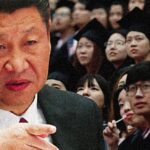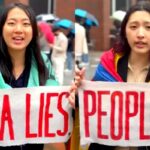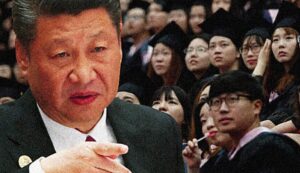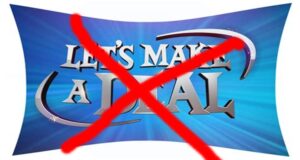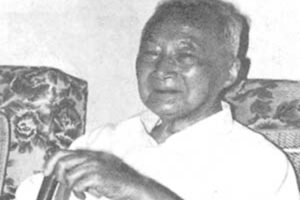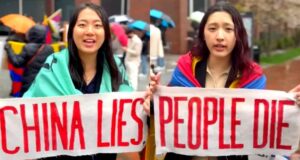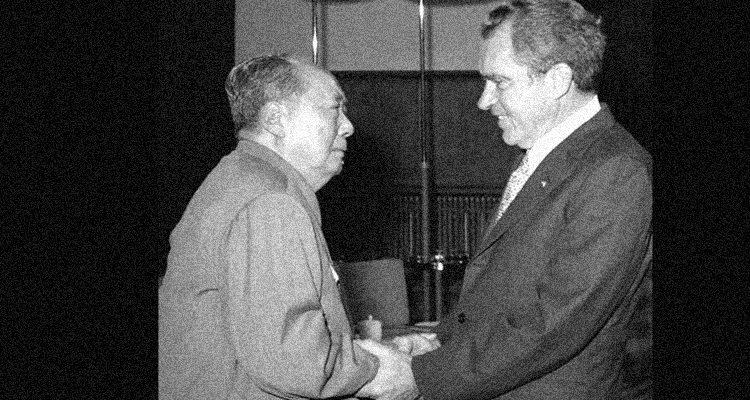
Many foes of the Chinese party-state have cheered Trump’s punitive tariffs on China, but not all welcome the 90-day semi-truce in the tariff war that the U.S. administration negotiated. China scholar Steven Mosher has suggested that “fear of renewed tariff hikes may finally force China’s cooperation”; another student of China, Gordon Chang, says that the evidence so far is to the contrary.
Chang agrees with those who say that the agreement to reduce mutual tariff rates “by 115 percentage points for 90 days” was an immediate win for China. He even lumps Trump with such leading American appeasers of China as Richard Nixon, George H.W. Bush, and Bill Clinton (“Is Trump rescuing China’s Communists?,” Fox News, May 27, 2025).
The reduction in American tariffs allows China to resume sales to the U.S….but the reduction in Chinese tariffs does little to permit American goods to enter China. The main obstacles to American exports to China are China’s non-tariff barriers, and the announced pause does nothing to end non-tariff barriers put in place before April 2, “Liberation Day,” as Trump called it.
Moreover, the reduction in U.S. tariffs is akin to unilateral disarmament. U.S. tariffs are generally remedies for China’s theft of U.S. intellectual property and its increasingly predatory trade practices. During the pause, China is continuing these unacceptable practices without facing the penalty of America’s elevated tariffs….
The 90-day pause, therefore, gave the Chinese regime a lifeline. Now, China’s factories can make and ship products to America for the most important time of the year for them: the Christmas season, which starts around June.
The Communist Party is no stranger to rescues from America. Three times American presidents have saved communism in China.
Chang recalls Nixon’s cringe-inducing chumminess with the communists in the early 1970s, toward the end of the Cultural Revolution; Bush I’s “lifeline” to Deng Xiaoping “after the nation-wide demonstrations and slaughter in Beijing’s Tiananmen Square in 1989”; Clinton’s CCP-enriching trade deal of 1999, “which came at a low point for a Chinese state then struggling to emerge from the Asian financial crisis.”
A 90-day truce (if it is a 90-day truce; it’s already collapsing) doesn’t mean that Trump has given up the fight. But China has not been abiding by even the limited concessions that made the temporary cessation of (some) tariff hostilities possible. Despite China’s promises, various nontariff retaliations are still in force, including its April 4 ban on the export of magnets and various minerals.
“Finally, on May 18, the Chinese central government upped the stakes, provocatively imposing a 74.9% anti-dumping duty on U.S.-made POM copolymers, an industrial plastic.” (China also imposed duties on imports of POM copolymers from Japan, Taiwan, and the EU, but duties of lower rates.)
Don’t trust China
Chang quotes former diplomat Charles Burton of the Sinopsis.cz think tank. “Bad faith bargaining is the Communist Party’s stock-in-trade,” Burton told him.
“Trump had leverage and gave it up,” is Chang’s summary. “China then went on the attack.”
The U.S. is also going on the attack. CNN reported on May 29 that a “flurry of punitive measures taken against China by the Trump administration over the last few days was prompted by a belief among US officials that China has failed to live up to commitments it made in trade talks earlier this month, three administration officials told CNN”
Or as Trump puts it, China “TOTALLY VIOLATED ITS AGREEMENT WITH US.” He seems surprised.
Also see:
StoptheCCP.org: “Steven Mosher Says U.S. Won Round One of Trade War With China”
